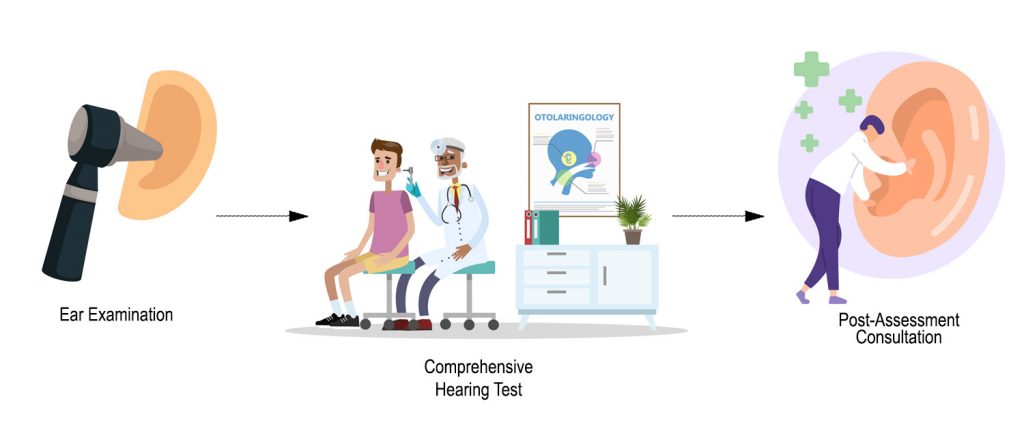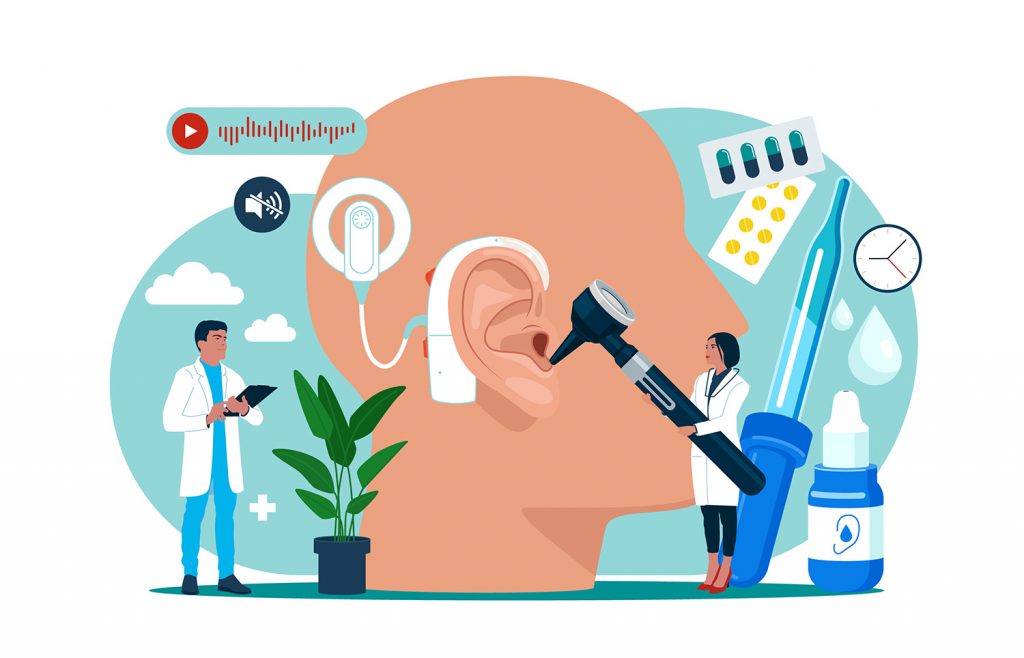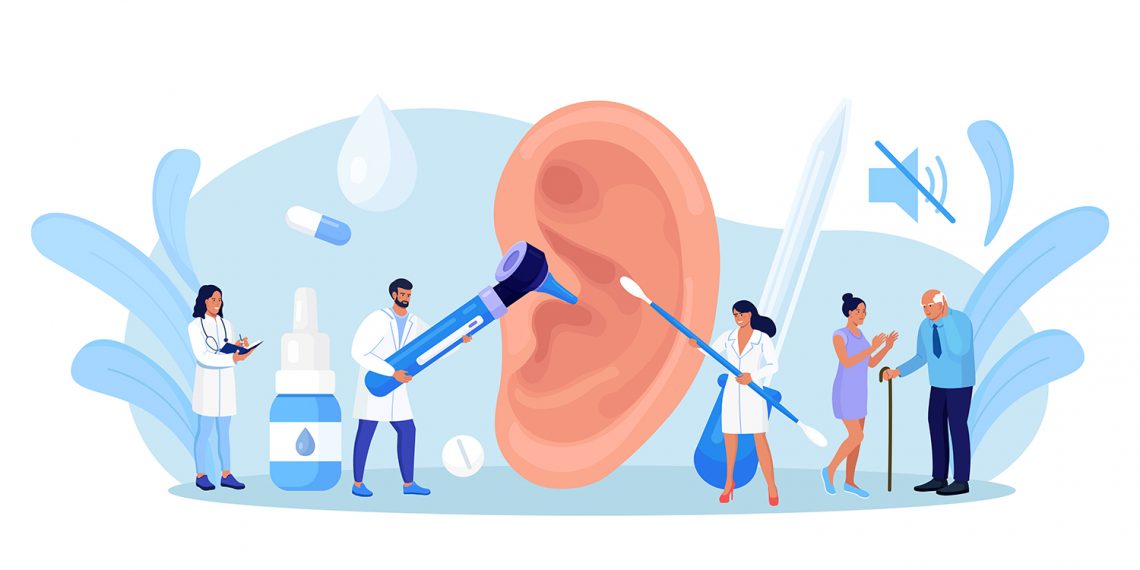When facing concerns about your hearing, a hearing health professional (HHP) can guide you through a structured process to assess your situation and provide suitable solutions.
Here’s what you can anticipate when you book a hearing assessment:
Initial Discussion and Medical History Review:
At the beginning of your appointment, the HHP will inquire about your hearing health, go over your medical history, and discuss scenarios where you encounter communication difficulties. This holistic approach allows them to grasp the extent and potential causes of your hearing challenges.

Ear Examination:
The HHP will then utilize an otoscope to inspect your ear canals, ensuring they’re clear. If they detect wax buildup, they’ll recommend appropriate wax removal methods.
Comprehensive Hearing Test:
Once your ears are confirmed to be clear, the actual hearing assessment begins. While protocols might slightly vary among clinics, most assessments typically comprise:
- Middle ear test
- Audiometry assessment
- Speech test
- A detailed discussion of your results
Post-Assessment Consultation:
Based on the results of your hearing assessment, the HHP will discuss various outcomes and corresponding next steps, such as:
- Regular check-ups every 12 months if a hearing is within normal limits.
- Possible referral back to your physician if a medical concern arises that demands further investigation or treatment.
- Rehabilitation options, including the recommendation of a hearing device, especially if the hearing loss identified cannot be addressed medically.
Making Informed Decisions:
After understanding your results, you might need some time to reflect or might consider obtaining a second opinion, which is completely acceptable.
If you’re ready, you might discuss potential hearing devices. Some clinics even offer the opportunity to fit a trial device immediately. Your HHP will adhere to ethical guidelines when recommending hearing devices, ensuring your best interests are always at the forefront.
Hearing Device Discussion and Fitting:
 If a hearing aid is recommended, a series of discussions and steps will follow:
If a hearing aid is recommended, a series of discussions and steps will follow:
- You’ll discuss device types, aligning your preferences with HHP’s expertise. It’s vital to maintain an open mind, understanding that certain devices might not be suitable due to various reasons, such as ear shape, susceptibility to ear wax, or specific hearing loss characteristics.
- A quote will be provided, detailing what the cost covers.
- If necessary, an impression of your ear will be taken for a custom-made ear mold.
- During the fitting appointment, the clinician will ensure you’re comfortable with the device. They’ll guide you on the device’s use, maintenance, and battery management.
Follow-up and Continued Support:
A subsequent appointment is typically scheduled to address any concerns and ensure you’re adapting well to the hearing device. During this phase, it is crucial to maintain open communication with your clinician, particularly if you come across any difficulties.
Industry Standards and Best Practices:
In the U.S., both Audiologists and Audiometrists play crucial roles in the hearing healthcare industry. All HHPs are bound by specific professional standards and guidelines ensuring consistent and top-tier care for every patient.
Having learned about the hearing assessment process and the role of hearing healthcare professionals, you are now capable of making informed decisions about your hearing health.




